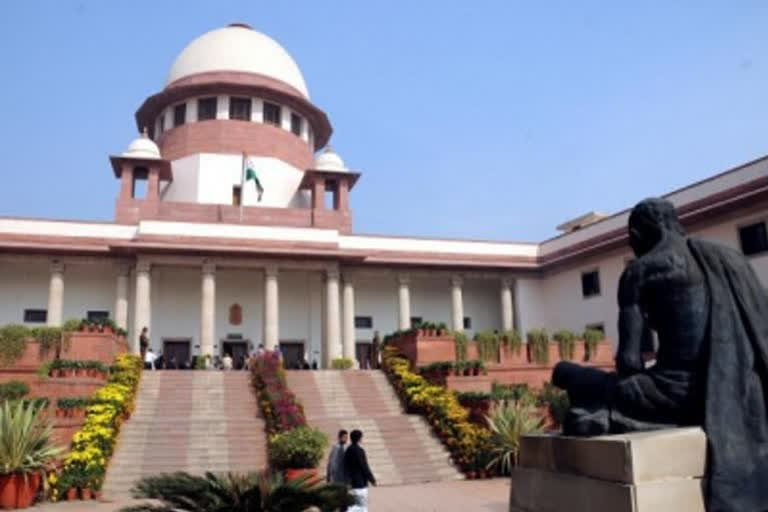New Delhi: The Supreme Court Monday sought responses from the Kerala government and others to a plea of the Guruvayur Devaswom Managing Committee (GDMC) challenging a 2020 high court verdict holding all properties of the famous Lord Krishna temple in Guruvayur vest in the presiding deity and its management has no power to divert the funds.
The dispute arose after the GDMC donated Rs 10 crore to the Chief Minister's Distress Relief Fund (CMDRF) for flood victims in the state and Rs 5 crore for fighting the COVID-19 pandemic. The Kerala High Court, on December 18, 2020 held that all movable and immovable properties dedicated to the presiding deity of the famous Sri Krishna temple in Guruvayur shall vest in the idol of Lord Guruvayurappan and its managing committee had no power to divert the funds to the government or any other agency.
A bench comprising Chief Justice Uday Umesh Lalit and Justices Ajay Rastogi and S Ravindra Bhat took note of the submissions of senior advocate C A Sundaram, appearing for the temple management committee GDMC, and issued notices to the state government and 28 others including officials supervising the Devaswom board. The bench, meanwhile, asked the parties to hold their hands with regard to finances till it decides the appeal of the GDMC against the high court verdict. The senior lawyer said there were two aspects of the matter- one pertained to the rules and the other to the culture and tradition of the temple.
This is a Lord Krishna temple...What for the money has been given? The money has been given for the flood relief and for COVID victims, he added. Issue notice returnable on October 10, 2022. Dasti in addition, the bench said. Dasti summons means one is willing to serve it on the opposite party personally without the appointment of a process server. Meanwhile, KSR Menon, President of the Democratic Social Justice Party (DSJP), filed a caveat in the top court in the matter, saying he be also heard as he was among the parties who had initially approached the Kerala High Court on the issue challenging the decision of the Guruvayoor Devaswom Board to divert funds.
The high court, in its verdict, had held that all the properties vest with the presiding deity. A full bench of the high court had made the observations on a batch of petitions challenging the decision of the GDMC to donate the temple funds to the Chief Minister's Distress Relief Fund (CMDRF) for flood victims in the state.
The high court had overruled a 2019 order of a division bench, holding that its view on Section 27 of the Guruvayur Devaswom Act of 1978 related to the authority of the GDMC to incur "certain expenses" out of the Devaswom funds.
The division bench had incorrectly interpreted the word "certain" as it could be taken as a clear indication of the non-exhaustive nature of items wherein the GDMC could have the authority to expend the Devaswom funds, the high court had said. In an over 100-page order dealing with the role of the committee and aspects related to the expenditure to be incurred as per the devaswom act, it had said the GDMC was bound to administer control and manage all the properties belonging to Guruvayur Devaswom and that its status was that of a trustee.
"All the properties, including movable and immovable properties and money, dedicated to or endowed in the name of Lord Guruvayurappan or any property acquired in any manner by Guruvayur Devaswom shall vest in the idol of Lord Guruvayurappan, consecrated in the Sree Krishna Temple,Guruvayur," the court had said in its order. "None of the provisions in the Act of 1978, including Section 27, authorises GDMC, or the Administrator or the Commissioner to contribute or part with or give away in any manner any amount from the funds belonging to the Guruvayur Devaswom, either to the CMDRF or to any other governmental agency, for any purpose specified under the Act....," it had said. The petitioners before the high court had contended that the decision was in total violation of the provisions of the Guruvayur Devaswom Act and diversion of the Devaswom funds to CMDRF also violated their fundamental rights guaranteed under Articles 14, 25 and 26 of the Constitution. (PTI)



